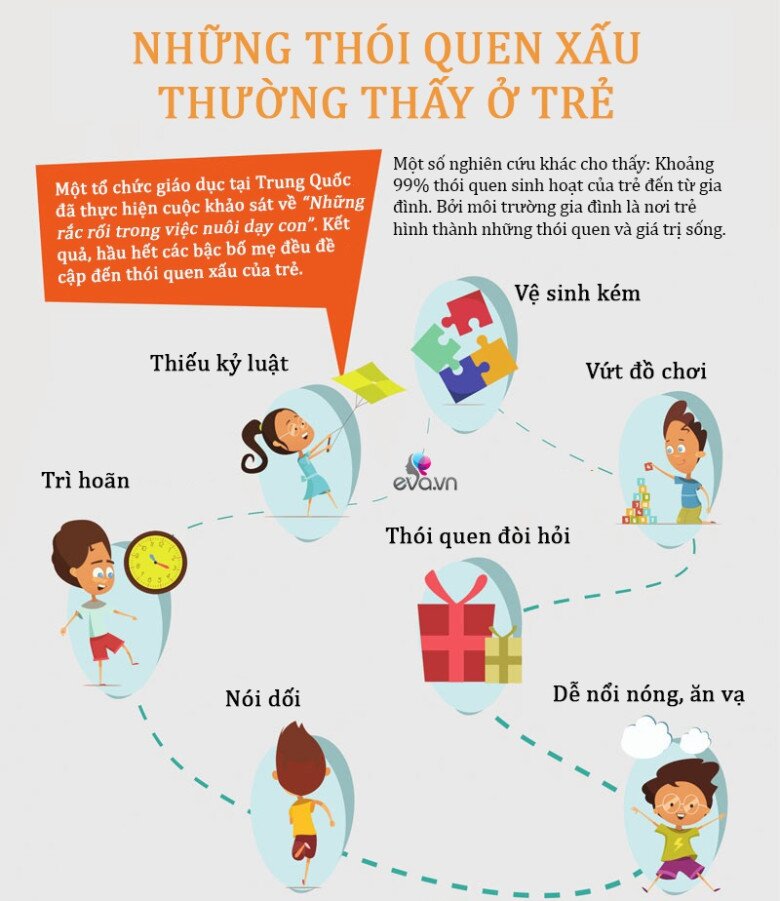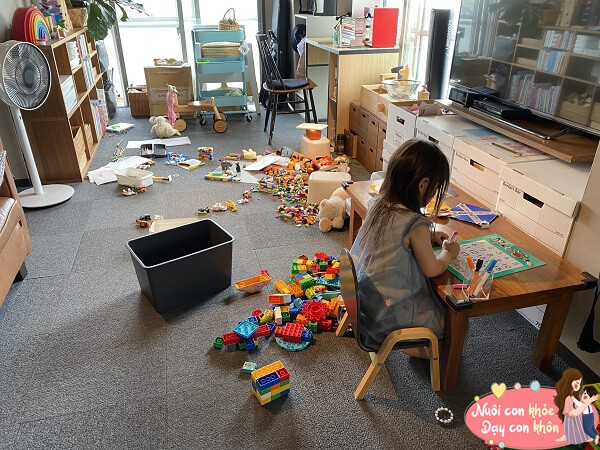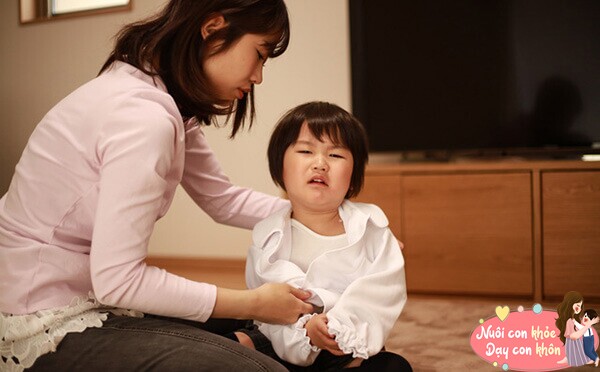It is often observed that parents tend to focus on their children’s bad habits.
However, up to 90% of parents may not realize that how they address these bad habits will determine their child’s life in 20 years.

Image source: Brainy

What are the common bad habits that parents complain about?
– Procrastination and half-hearted effort in doing homework.
– Throwing things around and leaving them scattered.
– A messy room that emits an odd smell even before stepping inside…
For children who lack focus in the classroom, despite being seated at the front by the teacher, their desks remain cluttered. When the bell rings, they lazily pick up their books from the floor and start gazing around with a distracted look. This behavior reflects a deep-rooted habit of inattention.

Parents often complain about their children’s daily bad habits.
In other words, a child accustomed to “throwing things around” will likely struggle with making clear plans for their tasks. Without organization and tidiness habits, they are easily distracted by their surroundings and unable to focus on essential tasks.
Child psychologist Rudolf Drakes wrote in his book, “The Child: The Challenge”: “We cannot protect children for life, nor would they want us to. But we do have a responsibility and duty to prepare them, to give them the courage and resilience to face life’s ups and downs.” This emphasizes that education is not just about imparting knowledge but also equipping children with the life skills needed to navigate future challenges.
However, many parents struggle with effective discipline and nurturing. They may feel overwhelmed when facing their children’s bad habits and unsure where to start. To improve this situation, it can be helpful to look at successful educational models from top universities worldwide for inspiration.
Let’s take a look at what Beijing University, a leading university, does. Each semester, the mandatory first course for freshmen is not a specialized subject or club activity but a course on learning and organizational unity. The aim is to impart knowledge and help students develop organizational, planning, and time management skills.

Parents feel confused about how to address their children’s bad habits.
The process of learning to organize is essentially about planning our lives. By organizing our lives and developing good habits, we set ourselves up for a brighter future. Habits such as making to-do lists, scheduling study and break times, help children develop self-management skills and improve their academic performance.
Moreover, when children know how to plan and organize, they will feel more confident facing complex tasks in the future, from preparing for exams to managing their daily lives.

Do children’s bad habits reflect their upbringing?
Research suggests that approximately 99% of children’s daily habits are influenced by their family environment. This is where they develop their habits and values.
For instance, the image of a father returning home from work, hastily removing his smelly socks, and tossing them anywhere creates a lasting impression on children. This action may convey the message that tidiness and hygiene are not important.
In reality, parents are role models for their children, both for good and bad habits.
If parents maintain a neat and organized space, regularly clean the house, and practice good personal hygiene, children will internalize the value of tidiness and cleanliness. Conversely, if children observe irresponsible behavior regarding their living environment, they may perceive it as the norm.
Harvard University’s research over the years has found that individuals who struggle with success and happiness often live in disorganized environments, while those who are successful and content tend to have neat and orderly homes.

Parents should set a good example for their children to follow.
This highlights how living environments impact children’s psychology and development. A clean and orderly space fosters a sense of comfort, encouraging focus on studies and personal growth.
Furthermore, a well-organized family environment teaches children how to manage their time and living space effectively. They learn planning and organization by observing their parents.
When family members work together to maintain a clean and tidy home, it fosters a sense of unity and belonging, strengthening their relationships. Therefore, start with small habits at home to lay a solid foundation for your child’s development and create a healthy and positive living environment.






































